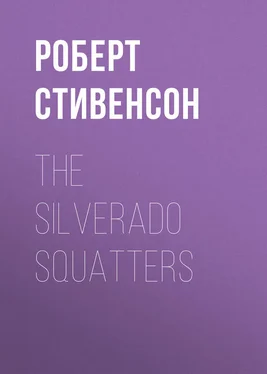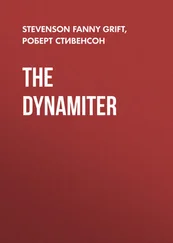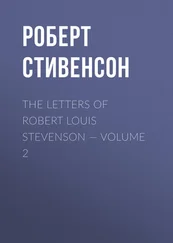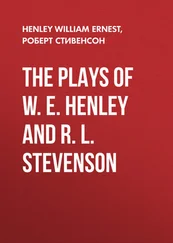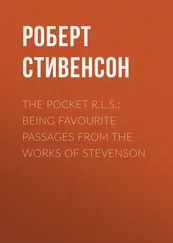Роберт Стивенсон - The Silverado Squatters
Здесь есть возможность читать онлайн «Роберт Стивенсон - The Silverado Squatters» — ознакомительный отрывок электронной книги совершенно бесплатно, а после прочтения отрывка купить полную версию. В некоторых случаях можно слушать аудио, скачать через торрент в формате fb2 и присутствует краткое содержание. Жанр: literature_19, foreign_antique, Путешествия и география, на английском языке. Описание произведения, (предисловие) а так же отзывы посетителей доступны на портале библиотеки ЛибКат.
- Название:The Silverado Squatters
- Автор:
- Жанр:
- Год:неизвестен
- ISBN:нет данных
- Рейтинг книги:5 / 5. Голосов: 1
-
Избранное:Добавить в избранное
- Отзывы:
-
Ваша оценка:
- 100
- 1
- 2
- 3
- 4
- 5
The Silverado Squatters: краткое содержание, описание и аннотация
Предлагаем к чтению аннотацию, описание, краткое содержание или предисловие (зависит от того, что написал сам автор книги «The Silverado Squatters»). Если вы не нашли необходимую информацию о книге — напишите в комментариях, мы постараемся отыскать её.
The Silverado Squatters — читать онлайн ознакомительный отрывок
Ниже представлен текст книги, разбитый по страницам. Система сохранения места последней прочитанной страницы, позволяет с удобством читать онлайн бесплатно книгу «The Silverado Squatters», без необходимости каждый раз заново искать на чём Вы остановились. Поставьте закладку, и сможете в любой момент перейти на страницу, на которой закончили чтение.
Интервал:
Закладка:
Meanwhile the wine is merely a good wine; the best that I have tasted better than a Beaujolais, and not unlike. But the trade is poor; it lives from hand to mouth, putting its all into experiments, and forced to sell its vintages. To find one properly matured, and bearing its own name, is to be fortune’s favourite.
Bearing its own name, I say, and dwell upon the innuendo.
“You want to know why California wine is not drunk in the States?” a San Francisco wine merchant said to me, after he had shown me through his premises. “Well, here’s the reason.”
And opening a large cupboard, fitted with many little drawers, he proceeded to shower me all over with a great variety of gorgeously tinted labels, blue, red, or yellow, stamped with crown or coronet, and hailing from such a profusion of clos and chateaux , that a single department could scarce have furnished forth the names. But it was strange that all looked unfamiliar.
“Chateau X – ?” said I. “I never heard of that.”
“I dare say not,” said he. “I had been reading one of X – ’s novels.”
They were all castles in Spain! But that sure enough is the reason why California wine is not drunk in the States.
Napa valley has been long a seat of the wine-growing industry. It did not here begin, as it does too often, in the low valley lands along the river, but took at once to the rough foot-hills, where alone it can expect to prosper. A basking inclination, and stones, to be a reservoir of the day’s heat, seem necessary to the soil for wine; the grossness of the earth must be evaporated, its marrow daily melted and refined for ages; until at length these clods that break below our footing, and to the eye appear but common earth, are truly and to the perceiving mind, a masterpiece of nature. The dust of Richebourg, which the wind carries away, what an apotheosis of the dust! Not man himself can seem a stranger child of that brown, friable powder, than the blood and sun in that old flask behind the faggots.
A Californian vineyard, one of man’s outposts in the wilderness, has features of its own. There is nothing here to remind you of the Rhine or Rhone, of the low côte d’or , or the infamous and scabby deserts of Champagne; but all is green, solitary, covert. We visited two of them, Mr. Schram’s and Mr. M’Eckron’s, sharing the same glen.
Some way down the valley below Calistoga, we turned sharply to the south and plunged into the thick of the wood. A rude trail rapidly mounting; a little stream tinkling by on the one hand, big enough perhaps after the rains, but already yielding up its life; overhead and on all sides a bower of green and tangled thicket, still fragrant and still flower-bespangled by the early season, where thimble-berry played the part of our English hawthorn, and the buck-eyes were putting forth their twisted horns of blossom: through all this, we struggled toughly upwards, canted to and fro by the roughness of the trail, and continually switched across the face by sprays of leaf or blossom. The last is no great inconvenience at home; but here in California it is a matter of some moment. For in all woods and by every wayside there prospers an abominable shrub or weed, called poison-oak, whose very neighbourhood is venomous to some, and whose actual touch is avoided by the most impervious.
The two houses, with their vineyards, stood each in a green niche of its own in this steep and narrow forest dell. Though they were so near, there was already a good difference in level; and Mr. M’Eckron’s head must be a long way under the feet of Mr. Schram. No more had been cleared than was necessary for cultivation; close around each oasis ran the tangled wood; the glen enfolds them; there they lie basking in sun and silence, concealed from all but the clouds and the mountain birds.
Mr. M’Eckron’s is a bachelor establishment; a little bit of a wooden house, a small cellar hard by in the hillside, and a patch of vines planted and tended single-handed by himself. He had but recently began; his vines were young, his business young also; but I thought he had the look of the man who succeeds. He hailed from Greenock: he remembered his father putting him inside Mons Meg, and that touched me home; and we exchanged a word or two of Scotch, which pleased me more than you would fancy.
Mr. Schram’s, on the other hand, is the oldest vineyard in the valley, eighteen years old, I think; yet he began a penniless barber, and even after he had broken ground up here with his black malvoisies, continued for long to tramp the valley with his razor. Now, his place is the picture of prosperity: stuffed birds in the verandah, cellars far dug into the hillside, and resting on pillars like a bandit’s cave: – all trimness, varnish, flowers, and sunshine, among the tangled wildwood. Stout, smiling Mrs. Schram, who has been to Europe and apparently all about the States for pleasure, entertained Fanny in the verandah, while I was tasting wines in the cellar. To Mr. Schram this was a solemn office; his serious gusto warmed my heart; prosperity had not yet wholly banished a certain neophite and girlish trepidation, and he followed every sip and read my face with proud anxiety. I tasted all. I tasted every variety and shade of Schramberger, red and white Schramberger, Burgundy Schramberger, Schramberger Hock, Schramberger Golden Chasselas, the latter with a notable bouquet, and I fear to think how many more. Much of it goes to London – most, I think; and Mr. Schram has a great notion of the English taste.
In this wild spot, I did not feel the sacredness of ancient cultivation. It was still raw, it was no Marathon, and no Johannisberg; yet the stirring sunlight, and the growing vines, and the vats and bottles in the cavern, made a pleasant music for the mind. Here, also, earth’s cream was being skimmed and garnered; and the London customers can taste, such as it is, the tang of the earth in this green valley. So local, so quintessential is a wine, that it seems the very birds in the verandah might communicate a flavour, and that romantic cellar influence the bottle next to be uncorked in Pimlico, and the smile of jolly Mr. Schram might mantle in the glass.
But these are but experiments. All things in this new land are moving farther on: the wine-vats and the miner’s blasting tools but picket for a night, like Bedouin pavillions; and to-morrow, to fresh woods! This stir of change and these perpetual echoes of the moving footfall, haunt the land. Men move eternally, still chasing Fortune; and, fortune found, still wander. As we drove back to Calistoga, the road lay empty of mere passengers, but its green side was dotted with the camps of travelling families: one cumbered with a great waggonful of household stuff, settlers going to occupy a ranche they had taken up in Mendocino, or perhaps Tehama County; another, a party in dust coats, men and women, whom we found camped in a grove on the roadside, all on pleasure bent, with a Chinaman to cook for them, and who waved their hands to us as we drove by.
CHAPTER IV – THE SCOT ABROAD
A few pages back, I wrote that a man belonged, in these days, to a variety of countries; but the old land is still the true love, the others are but pleasant infidelities. Scotland is indefinable; it has no unity except upon the map. Two languages, many dialects, innumerable forms of piety, and countless local patriotisms and prejudices, part us among ourselves more widely than the extreme east and west of that great continent of America. When I am at home, I feel a man from Glasgow to be something like a rival, a man from Barra to be more than half a foreigner. Yet let us meet in some far country, and, whether we hail from the braes of Manor or the braes of Mar, some ready-made affection joins us on the instant. It is not race. Look at us. One is Norse, one Celtic, and another Saxon. It is not community of tongue. We have it not among ourselves; and we have it almost to perfection, with English, or Irish, or American. It is no tie of faith, for we detest each other’s errors. And yet somewhere, deep down in the heart of each one of us, something yearns for the old land, and the old kindly people.
Читать дальшеИнтервал:
Закладка:
Похожие книги на «The Silverado Squatters»
Представляем Вашему вниманию похожие книги на «The Silverado Squatters» списком для выбора. Мы отобрали схожую по названию и смыслу литературу в надежде предоставить читателям больше вариантов отыскать новые, интересные, ещё непрочитанные произведения.
Обсуждение, отзывы о книге «The Silverado Squatters» и просто собственные мнения читателей. Оставьте ваши комментарии, напишите, что Вы думаете о произведении, его смысле или главных героях. Укажите что конкретно понравилось, а что нет, и почему Вы так считаете.
